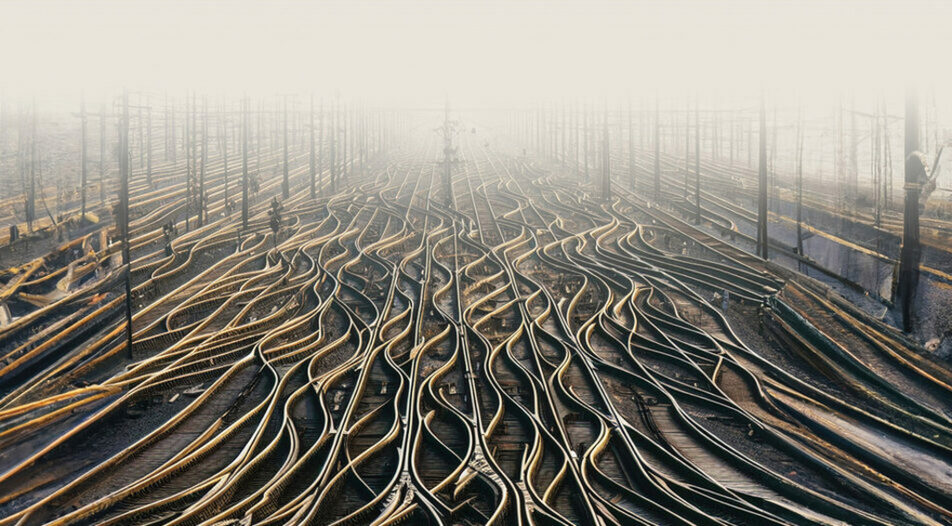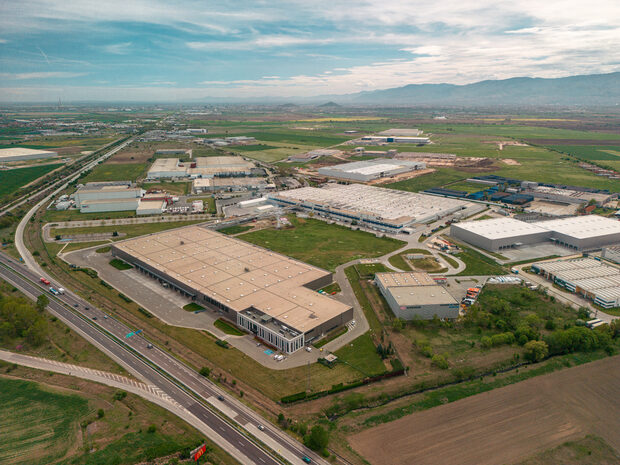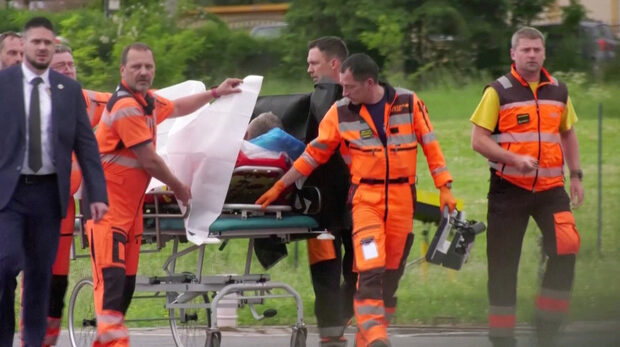- The growing demand for adequate rail transport outpaces the speed of the Bulgarian State Railways.
- The state railway is currently at one of its lowest points in recent years.
- Besides the lackluster political (dis)interest and funds from the EU, there is little else driving the development of the rail system in the country.
43 km/h. This is the average speed of a passenger train in Bulgaria in 2022. Since the first rail line in the country was opened in 1886, and after 17 years of EU membership with billions allocated for repairs, the most pressing question seems to be: why on earth does Bulgaria still not have a decent railway? After 20 years of repairing a single rail line, massive investments in modernization, and funds from Brussels for new trains, the railway in 2024 appears to be at one of its lowest points.
Freight rail company managers comment that it takes them 48 hours to cross the country. They explain that "the network is dug up everywhere, and many sections are closed." Their clients and partners complain they cannot guarantee timely deliveries if the train must cross Bulgaria. The situation is described by the cargo rail business as "tragic." Unofficial information from the National Railway Infrastructure Company (NRIC) suggests that it will get "worse." The railways are managed by the state-owned Bulgarian State Railways (BDZ) which is under NRIC's control.
The situation for passenger travel looks even more dramatic. Chaos at Sofia Central Station in recent weeks, rerouting of trains from Northern Bulgaria, delays of up to an hour-and-a-half, and frustrated passengers appearing in TV reports saying, "It's not normal for rail transport to be so underdeveloped in Bulgaria in the 21st century."
An increasing portion of society in Europe and around the world sees this mode of transport not as a relic with social functions but as the transportation of the future-fast, punctual, reliable, comfortable, improving quality of life, and environmentally friendly. The question "Why on earth do we not have a decent railway?" is more relevant than ever.
A lack of vision
The railway is more like a water and sewer network-out of sight, invisible until a major accident occurs, like the collision of two trains at Central Station this week, for example. Also, it is used by only a limited circle of travelers. This allowed the railway to be neglected for years, without a vision for long-term development, and to quietly deteriorate, without ever completely collapsing, remaining a huge, lucrative source of funds and public procurement for certain structures.
Bulgaria is absent from the map of high-speed trains in Europe, and its future goals are conservative-up to 160 km/h. What has stimulated rail activities in the country at a snail's pace over the years is the lack of vision (and money) of the EU to develop its Trans-European Transport Network (TEN-T) corridors.
NRIC is committed to prioritizing the development of sections within the TEN-T network, with the main efforts focused on the notorious Sofia-Burgas line with branches to Turkey, Greece, and Serbia. To this end, Brussels has provided significant funds over three consecutive operational programs-1.7 billion levs or 864.3 million euro have been invested so far, and by the end of 2027, this should reach 3.1 billion levs.
Yet, even so, the railway is developing at a painfully slow pace. About 20 years after the beginning of the "modernization," this single direction is only partially ready. According to data from the Ministry of Transport, a total of 482 km have been modernized so far, or 24 km per year. Literally, with 4029 km of railways in the country, it will take another 148 years to repair the entire network. Or, by 2172, we will have a "modern railway."
The Ministry responds that work is ongoing to "complete the modernization of the Elin Pelin-Kostenets section, the Plovdiv-Burgas line, and the Voluyak-Dragoman section." In other words, almost nowhere is ready. Except for the Plovdiv-Svilengrad section to the Turkish border.
"Implementing rail projects is of utmost importance for transport connectivity and reducing harmful emissions," writes the Ministry of Transport in answers to Capital Weekly. However, the unofficial explanation from sector insiders is that after the initial period of modernization, which saw a strong foreign presence among builders, NRIC tenders "were subsequently won by companies without capacity, close to certain individuals."
In the summer of 2023, two of NRIC's projects reached the European Public Prosecutor's Office in Luxembourg. It began investigating the contractors of two contracts-Kostenets-Septemvri and Orizovo-Mikhailovo. "The contractors are suspected of making fictitious money transfers to a chain of shell companies in a short period, ultimately leading to cash withdrawals of over 2.5 million euros by criminal individuals," the institution reported.
"The first rail highway will be fully completed by the end of the 2021-2027 programming period with the secured EU funds," the Ministry of Transport claims. However, it has often missed its forecasts over the years, and this timeline again sounds optimistic.
No trains, no passengers
Even the purchase of new trains-Brussels provides funds under the recovery plan to cover 50% of the destinations-seems like an almost impossible task for several consecutive transport ministry administrations. In the last two months, there has been some movement: one contract was signed, another is pending, and it appears that most of the trains in the country will be Polish.
The new machines will likely be "gifted" to the state-owned Bulgarian State Railways (BDZ). The contract with the state for the public service of "passenger transport" expires at the end of this year. Based on this contract, BDZ has received subsidies for its transport activities over the years, with the company's reports showing that these subsidies are its primary financial lifeline. For example, in 2022, net ticket revenues were only 50 million levs, while expenses were 324.5 million levs. The company, however, received state funding of 196 million levs, another 8 million levs in compensation for reduced fares, and a capital transfer of 49 million levs. Thus, the final result was a loss of "only" 10 million levs.
The state will likely sign a new contract for the entire network, rather than holding a competition for separate lots. This means that BDZ will continue to lack competition and market incentive to improve quality and compete for passengers. Expert calculations show that only 2-3% of all travelers use the railway. In summary, the hope is that by 2027-2028, there will be one completed direction and purchased trains covering 50% of BDZ's needs. But will it happen?
- The growing demand for adequate rail transport outpaces the speed of the Bulgarian State Railways.
- The state railway is currently at one of its lowest points in recent years.
- Besides the lackluster political (dis)interest and funds from the EU, there is little else driving the development of the rail system in the country.
43 km/h. This is the average speed of a passenger train in Bulgaria in 2022. Since the first rail line in the country was opened in 1886, and after 17 years of EU membership with billions allocated for repairs, the most pressing question seems to be: why on earth does Bulgaria still not have a decent railway? After 20 years of repairing a single rail line, massive investments in modernization, and funds from Brussels for new trains, the railway in 2024 appears to be at one of its lowest points.












